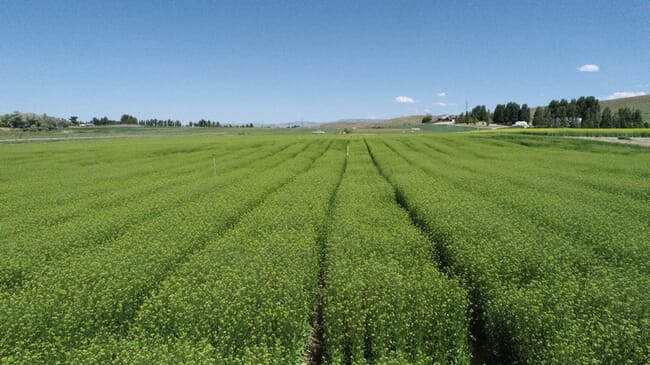
© Yield10 Bioscience
Yield10 Bioscience - an agricultural bioscience company - today announced that UK-based Rothamsted Research Limited has granted to the company an exclusive global, commercial license to advanced technology for producing sustainable omega-3 products in the plant species Camelina Sativa – a common oilseed crop.
Over the last decade, the Rothamsted team, led by Professor Johnathan Napier, has demonstrated the production of omega-3 oils in Camelina seed and conducted evaluations of the oils in salmon feeding and human clinical studies to demonstrate lipid lowering effects.
Yield10 has announced that it intends to use the genetically engineered Camelina to commercially produce omega-3 oil and meal products targeting the aquafeed, pet food, and nutritional markets. If the company’s plans prove successful, the engineered plants could present a more sustainable omega-3 alternative to current sources currently used in aquafeeds, such as fish oils and meal.
Currently, the primary source of EPA and DHA – two common omega-3 fatty acids - is ocean-caught fish, where omega-3 oil produced from anchovy harvest is the industry benchmark. Over the last few years, there has been increasing pressure on the supply of omega-3 oil due to over-fishing.
“In 2024, we are positioned to execute on the scale-up of omega-3 producing Camelina and to submit key regulatory filings with the goal of being ready for an initial commercial launch into the oil and meal markets,” said Yield10 chief executive Dr Oliver Peoples, in a press release.
“We also look forward to improving the current Camelina varieties over time particularly with the deployment of herbicide tolerance and other performance traits,” he added.




